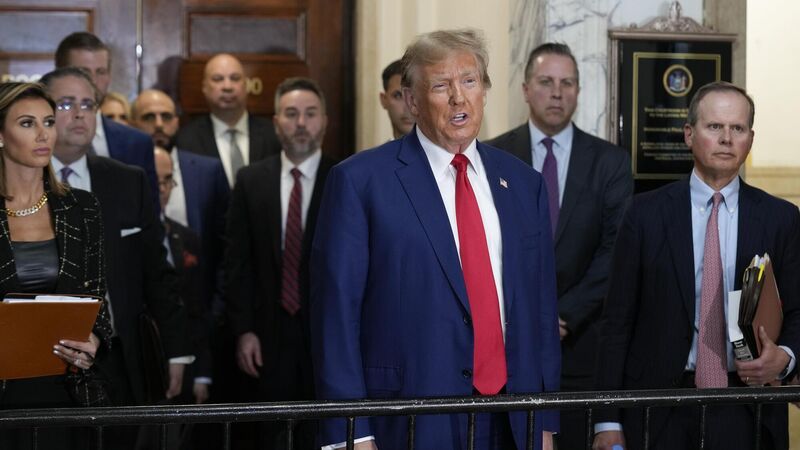Donald Trump beat his opponents. But can he beat the courts?

Former President Donald Trump at New York Supreme Court. His supporters view him as Christ-like, being crucified on their behalf.
Donald Trump’s most dangerous race is not with other Republican candidates, but against the law. In his political match, he faces no serious contest. His victory in the Iowa caucuses results was crushing. But in his legal trials, he is on the run. For Trump, the legal is the political.
The calendars overlap. His overarching strategy is not so much calculated to defeat his feeble Republican opponents but to delay his trials by any gambit necessary. The delays give him space to depict himself as a martyr, taking the slings and arrows for his believers, who are his hope to rescue him.













